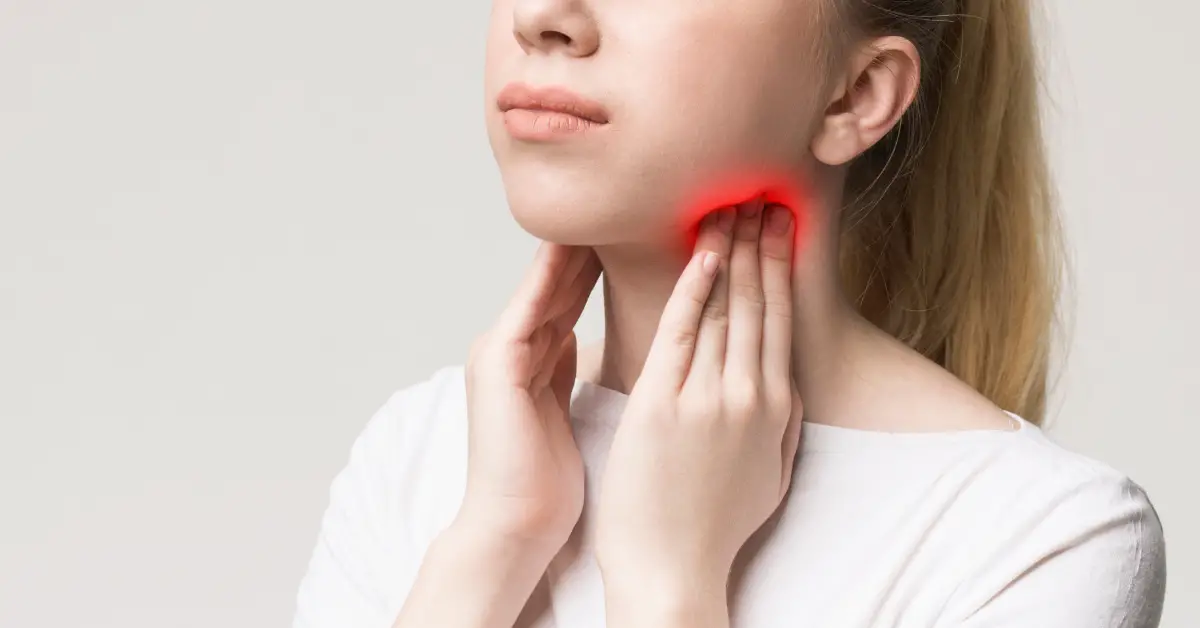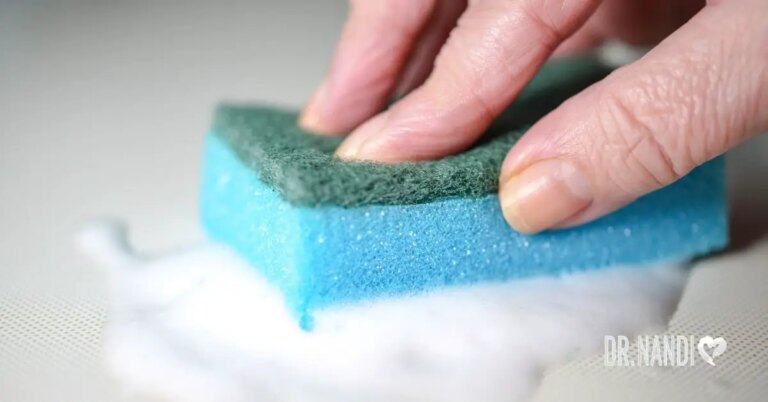Meeting our responsibilities while fulfilling our personal needs is all well and good — until everything catches up with us. We may then realize we are not looking after ourselves physically or emotionally.
Our emotional signals may tell us that we are out of balance — such as irritability, overwhelm, and even resentment.
Many women and men wonder if their hormones are out of balance. They can then feel frustrated, depressed, and even more irritable. This can lead to a lack of energy to exercise or make smart choices — which makes it easy to get stuck in a rut of idleness, poor sleep, or poor diet.
Dr. Nirusa Kumaran, founder and medical director of Elemental Health Clinic in the UK, has spoken recently about hyperthyroidism (an overactive thyroid).
She highlighted how the thyroid gland influences every single system of the body.
Also discussed was the fact that if left undiagnosed or untreated, an overactive thyroid gland in the neck produces too many hormones that can lead to irritability.
Symptoms of Hyperthyroidism
An overactive thyroid results in high levels of the 2 main thyroid hormones, triiodothyronine (also called T3) and thyroxine (also called T4), in your body.
Speaking to The Express Newspaper, Dr. Kumaran explained that an overactive thyroid gland in the neck can cause unintentional weight loss, diarrhea, insomnia, heat intolerance, excessive sweating, anxiety, heart palpitations, and skin itching — all as a result of the condition.
Other possible symptoms of an overactive thyroid can include:
- Hyperactivity and nervous energy
- Mood swings
- Feeling tired all the time
- Muscle weakness
- A need to pee often
- Persistent thirst
- Loss of interest in sex. (1)
Physical symptoms may include:
- Swelling in the neck caused by an enlarged thyroid gland (goiter)
- Twitching or trembling
- Red palms
- Loose nails
- A raised, itchy rash – known as hives
- Patchy hair loss, alopecia, or thinning hair
- Eye problems, such as redness, dryness, or vision problems
- In some cases, vitiligo (1, 2)
If left untreated, hyperthyroidism can lead to heart complications, such as:
- Tachycardia (a fast heartbeat)
- Atrial fibrillation
- Heart failure (2)
Kumaran said of hyperthyroidism being left untreated: “You are also likely to develop skin changes called ‘thyroid dermopathy’, and changes to the nails called clubbing. You can have changes to the appearance of the eyes where there is retraction of the eyelids, a delay in moving the eyelid down, and proptosis.”
If you are going through any irritable or scary symptoms, Dr.Nandi’s Newsletter can guide you through online advice and nutrition programs to help reduce and manage them. You can learn how to eat, sleep, and live better.
Here are some quick tips for balancing your hormonal system, which are not only essential for thyroid health but also for your energy, libido, bone health, and adrenal resilience:
- Cut down on sugar
- Reduce stress
- Set a laptop and device curfew, and getting plenty of sleep
- Practice extreme self-care
- Eat enough protein
- Do regular exercise (7, 8, 10)

Causes of an Overactive Thyroid
A variety of conditions can cause your thyroid to become overactive.
- Your Medication
An increased iodine level in your body can cause your thyroid to produce too many thyroid hormones. This can happen if you’re taking an iodine-containing medication, such as amiodarone, which is sometimes used to control an irregular heartbeat (arrhythmia).
Overactive thyroid caused by medication usually improves once the medication is stopped, although this may take several months.
- Nodules on the Thyroid
If lumps (nodules) form on your thyroid, your thyroid can become overactive. Nodules are typically non-cancerous (benign), but they may contain thyroid tissue, which can result in excessive thyroid hormone production.
It is unknown why some people develop thyroid nodules, but they are more common in people over the age of 60.
- Graves’ Disease
Graves’ disease affects roughly one in every four people who have an overactive thyroid gland. It is an autoimmune disorder in which your immune system incorrectly attacks your thyroid, causing it to become overactive.
It has no known cause, but it primarily affects young or middle-aged women, and it can be genetic. Smoking can also increase your chances of contracting it.
Other possible causes of an overactive thyroid include:
- High levels of human chorionic gonadotropin in your body – this can happen in early pregnancy, multiple pregnancies, or a molar pregnancy.
- A pituitary adenoma – a non-cancerous tumor in the pituitary gland (a gland at the base of the brain that can affect the level of thyroid hormones).
- Thyroiditis – swelling of your thyroid, which can cause extra thyroid hormones to be produced.
- Thyroid cancer – rarely, a cancerous thyroid tumor can affect the production of thyroid hormones.
Doctors’ Dietary Advice
There is a permanent treatment for hyperthyroidism. Removing your thyroid through surgery or destroying your thyroid through medication will cure the condition.
The drawback is that once your thyroid is removed or destroyed, you’ll need to take thyroid hormone replacement medications for the rest of your life. (3)
Dr. Kumaran stated, when asked about ways to prevent hypothyroidism: “As a general guide, it is recommended to avoid: excess salt, refined sugars, processed foods, red meats, saturated fats, and alcohol.”
For thyroid health, iodine balance is essential, but excessive iodine can lead to hyperthyroidism. If you suspect you may suffer from hyperthyroidism, you should avoid foods like seaweed, oysters, and liver. It is also recommended to limit your intake of soy. (4, 11)
Other Tips for Thyroid Health
If you have hyperthyroidism, there is also a chance you have a vitamin B-12 deficiency. This deficiency can lead you to feel fatigued, weak, and dizzy. If you have a vitamin B-12 deficiency, your doctor might suggest that you take a B-12 supplement or have a B-12 injection. (4)
It is also good to remember that you can ask for a thyroid collar when you get an X-ray to protect the gland from radiation.
The European Commission for Radiation Protection Guidelines concluded that providing thyroid shielding to patients can significantly reduce radiation doses. The shielding is recommended any time the thyroid is in the line of, or very close to, the primary beam. (9)
It’s also recommended to avoid smoking. You should try to avoid potential environmental contaminants, and finally, make sure to see your primary care doctor every year. (6)
More than 12 percent of people living in the United States will develop a thyroid condition at some time in their lives, and up to 60% of Americans with thyroid disease may not know they have the condition. (5)
Are you ready to feel more balanced and healthy? You are invited to check out Dr.Nandi’s Newsletter. You can have it delivered weekly to your inbox. It’s designed to get you on the path to healing in a streamlined and efficient way. You can then nurture your body and choose how you like to get healthy.

My Personal RX:
Building on the comprehensive advice above, I would like to provide some personal recommendations to help you balance your life, support your thyroid function, and optimize overall health. Here are my top tips:
- Balanced Diet: Maintain a healthy balanced diet. Nutrition plays a significant role in thyroid function. Try to include a variety of fruits, vegetables, lean proteins, and whole grains in your meals. Avoid processed foods and excessive salt. Aim to eat enough protein and cut down on sugar.
- Exercise Regularly: Make time for physical activity each day. Exercise helps in maintaining a healthy weight, reducing stress, and boosting your mood. It can also stimulate the production and efficiency of your thyroid hormones.
- Nature Therapy: Spending time in nature has been shown to reduce stress levels and promote feelings of wellbeing. Consider adding regular outdoor activities to your routine such as hiking, bird watching, or just a walk in the park.
- Protocol for Optimizing Health and Wellbeing: Download a free copy of this guide. This 50-page step-by-step guide can be a valuable resource in helping you make significant, positive changes in your life, encompassing everything from diet and exercise to mindfulness and self-care strategies.
- Thyroid Support: Consider the “Thyroid Support” supplement that promotes synthesis and improves cellular sensitivity of thyroid hormones. This can help balance your body’s regulatory systems. But, always remember to consult with a healthcare provider before starting any new supplement regimen to ensure it’s appropriate and safe for your specific health needs.
- Annual Check-ups: Regular visits to your primary care doctor are essential. This allows you to discuss any health concerns, undergo necessary screenings, and keep track of your overall health progress.
- Avoid Smoking: If you smoke, seek help to quit. Not only is smoking harmful to your overall health, but it can also exacerbate thyroid problems, particularly Graves’ disease.
- Thyroid Collar for X-rays: If you are getting an X-ray, ask for a thyroid collar. This can protect your gland from unnecessary radiation exposure.
Each of these actions can play a crucial role in balancing your hormones, supporting your thyroid health, and improving your overall wellbeing. Remember, everyone’s journey to health is different. So, don’t hesitate to tailor these recommendations to best suit your individual needs and preferences.

Sources:
- https://www.nhs.uk/conditions/overactive-thyroid-hyperthyroidism/symptoms/
- https://www.express.co.uk/life-style/health/1607616/thyroid-overactive-symptoms-signs-irritability
- https://my.clevelandclinic.org/health/diseases/14129-hyperthyroidism
- https://www.healthline.com/health/hyperthyroidism-natural-treatment
- https://www.thyroid.org/media-main/press-room/
- https://www.verywellhealth.com/ways-to-reduce-thyroid-disease-risk-3233225
- https://www.healthline.com/nutrition/balance-hormones#TOC_TITLE_HDR_2
- https://www.ncbi.nlm.nih.gov/pmc/articles/PMC6770041/
- https://infabcorp.com/thyroid-shield-protection/
- https://www.sleepfoundation.org/how-sleep-works/how-electronics-affect-sleep
- https://www.webmd.com/diet/foods-high-in-iodine



















